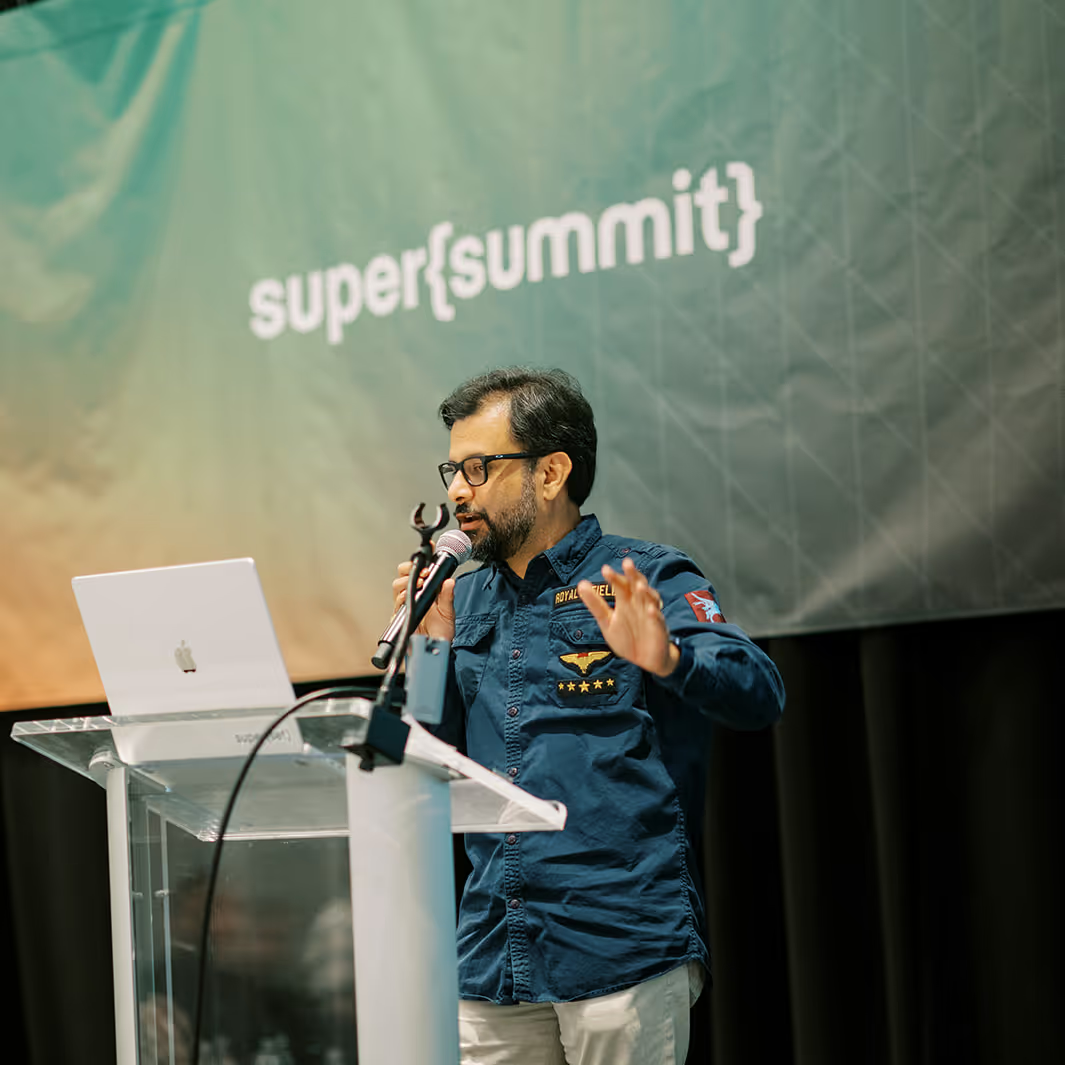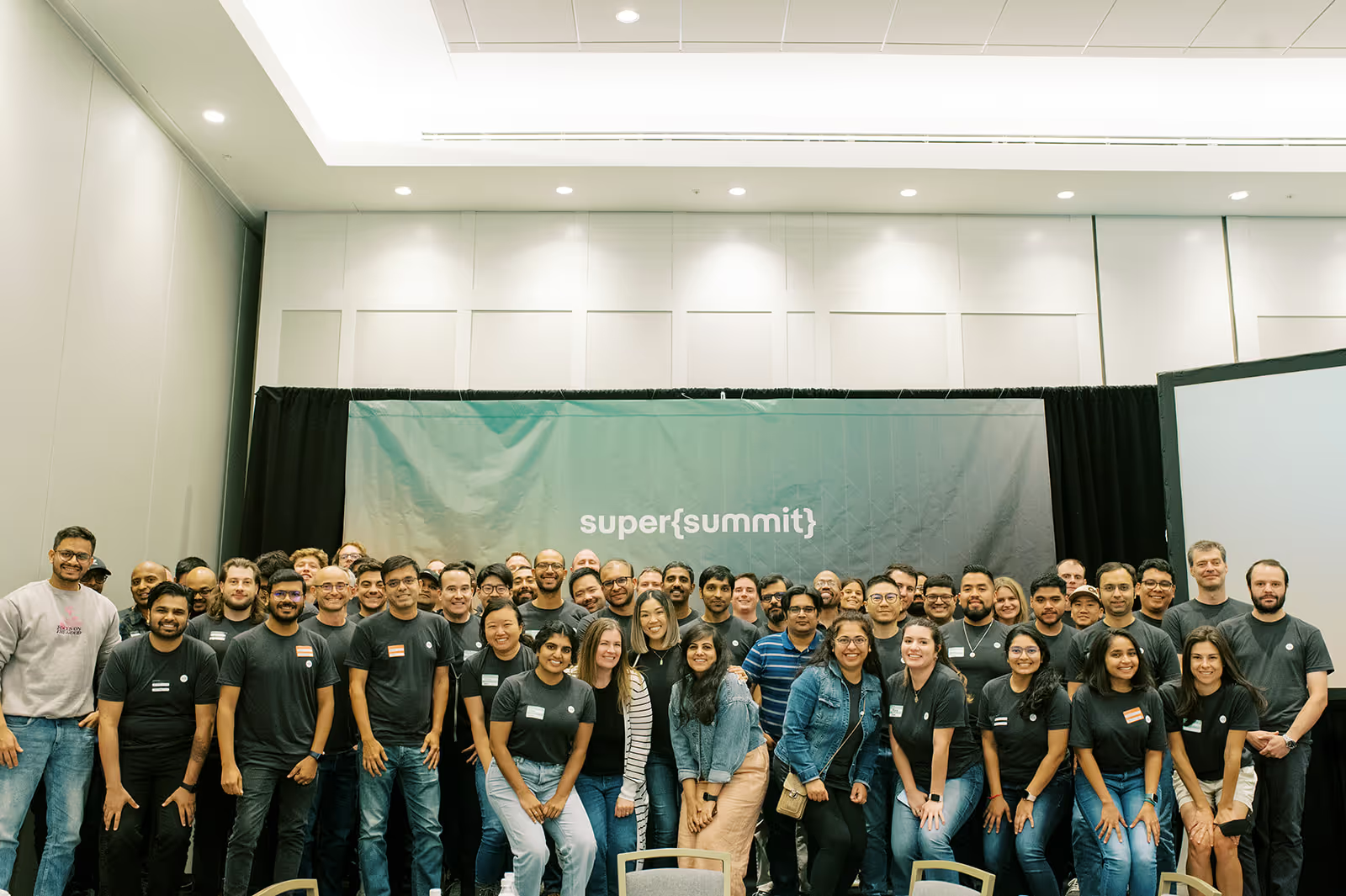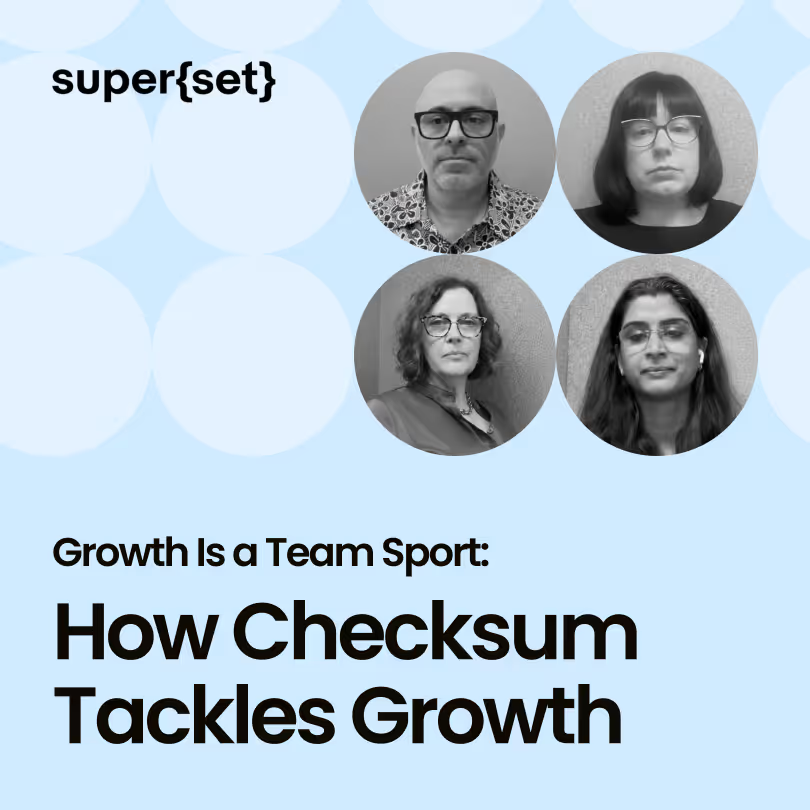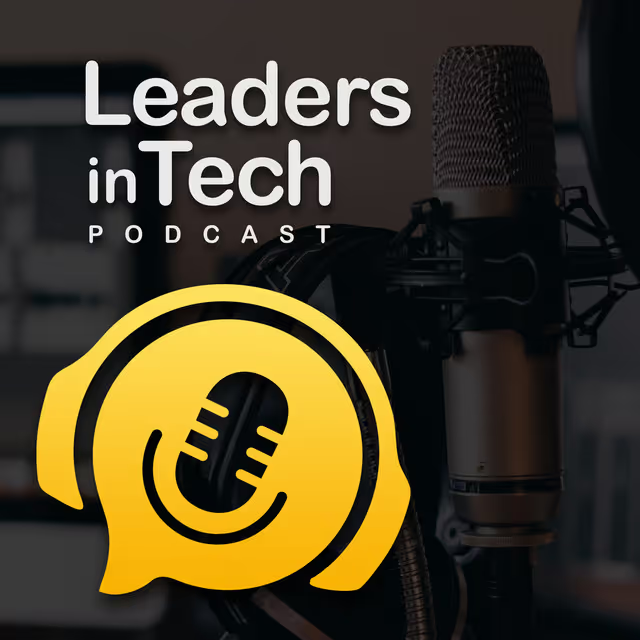
Overheard @ super{summit}
Albert Einstein said, “if you can’t explain it simply, you don’t understand it well enough.” As a technology leader, I have always been and continue to be a big proponent of the need for Engineers to learn and get really good at the art of communication - whether it is describing how a specific product or feature works or giving a product demo to internal and external audiences.
Last year, after we concluded our annual super{set} holiday party, I wondered about the possibility of organizing a “tech summit” where we would gather “builders” - Engineers, Product Managers, Analysts, really anyone who “builds” - from all the companies in the hive to build community, share knowledge, and further develop our collective talents with no ulterior motive other than to be together. And thus, the super{summit} was born.
The result surpassed my greatest expectations for the inaugural super{summit}. Nearly 100 builders from 11 different companies came together in Denver - the Mile High City - for three days featuring four keynotes, 30 sessions, and a lot of fun.
While we’ll be sharing more of the fantastic content produced by colleagues across the summit sessions over the next few weeks, I want to first share my key takeaways from super{summit} 2022. These are the insightful earworms that I overheard and resonated with me on the plane ride home and the days that followed, and that I hope will reverberate with you, too. Disclaimer: the list below is by no means complete because there was just too much insightful and engaging content for me to condense into one post.

“Don’t let Perfect be the enemy of Good Enough!”
I don’t remember exactly when I first came across this aphorism, but I have been saying it relentlessly to Product Managers and Engineers alike for the last 25 years. Similar quotes have been attributed to many philosophers, including Aristotle, Confucius, and Voltaire; even the English language’s most famous bard references it in King Lear. The most impactful adaptation in Computer Science was done by Prof. Donald Knuth when he said, “premature optimization is the root of all evil.”
During the Technology Leadership Panel discussion at the summit, Bryce Cottam from Spectrum Labs shared their version of this age-old aphorism: “Perfect is the enemy of Profit.” From a company building perspective, every millisecond spent finessing a design, feature, or service to try and make it perfect is a millisecond not spent turning that feature into revenue. Software development is a journey of making trade-offs. In the early stage especially, where speed to market is the most critical thing, shipping a product 80% done now is better than shipping an ostensibly perfect product 9 months from now.
Cade Garett, Head of Talent at super{set}, shared how this aphorism isn’t only a refrain for engineering problems. Too often, over-fastidious interview and/or bureaucratic performance management processes harm your efforts to recruit, nurture, and retain talent. When hiring, have the same empathy for your prospective talent that you do with your customers’ problems.
“Monitoring is for Monoliths. For microservices, use an Observability Platform.”
Peter Han and Tyler Bonilla from Ketch and Siddharth Sharma from Habu presented a very interesting session on Observability. In a world of loosely coupled services, polyglot persistence, and dynamic infrastructure, traditional metrics-based monitoring approaches are woefully inadequate when it comes to understanding system state, and triaging and diagnosing behavioral and performance issues. If you are a Developer or a DevOps Engineer, you will benefit significantly from learning about projects like OpenTelemetry. As I learned more about how to use structured events to record application behavior at the level of an individual request, I couldn’t help but think about how an Observability platform might help Product Managers understand actual user behavior - what kind of product level custom attributes could be logged with trace events?

“It’s time for Ethical Tech!”
Maritza Johnson and Yacov Salomon presented “The Privacy Stack” - a reference architecture for putting privacy by design into practice. The Privacy Stack is being designed and developed as part of The Ethical Tech Project (ETP) - a multi-disciplinary community of experts defining and building standards for Ethical Tech. In a world where news about privacy mishaps is becoming increasingly mainstream - the most recent being Sephora's CCPA settlement - Product Managers, Developers, and Executives at companies that work with consumer data need explicit guidelines on how to build systems that enable ethical and responsible use of consumer data. I look forward to partnering with the team at ETP as we design, build, and launch the Privacy Stack.
“What problem are you trying to solve?”
Anyone who has worked with me has heard me say this countless times. Too often in my career, over-eager colleagues across multiple functions ask, “can we do X, Y, or Z?”. I always tell them, “the answer to the can question is almost always yes, but first, tell me, what problem are you trying to solve?” This insight is not unique to me. Our two keynote speakers, Prof. James Mickens and Arvind Jain, reiterated similar if not identical messages during their fireside chats.
That mindset - of continually seeking and establishing clarity on the problem(s) we want to solve is at the heart of our company building ethos at super{set}. Whether it is writing a Solution Memo for a new company formation project or working with a customer who wants to know whether we can build a particular feature, we always start with articulating and establishing alignment on the problems for which solutions are to be built.
As the summit ended, quite a few folks asked whether the summit met my expectations. As someone well known for saying, “expectations reduce joy,” I hadn’t thought about what I expected from the summit. But as I reflected on the three days of learning, dialogue, relationship building, and sheer fun that had unfolded at the summit, all I could say was that the summit far exceeded my expectations.
“Go fast alone or go far together.”
I’ll end with one final quote - this one not overheard but just something the event reminded me of: “go fast alone or go far together.” People, Product, Customers - in that order - is our mantra at super{set}. Observing all the collaboration (a core super{set} value), interactions, and conversations between builders of different companies across the hive served as a great reinforcement of the power of “people first.”
THANK YOU to the entire super{set} builder community for showing up and representing! Now, I can hardly wait for the second installment of the super{summit}. It will be hard, but I’ll try to tamper and manage my expectations!
Finally, the summit reinvigorated what I’ve felt and known for some time - there’s never been a better time to build! So many problems, countless ideas on ways to solve them, plentiful global talent, and an abundance of tools create the perfect soil conditions for creating and building valuable companies that do well by doing good.
Tech, startups & the big picture
Subscribe for sharp takes on innovation, markets, and the forces shaping our future.
Let's keep in touch
We're heads down building & growing. Learn what's new and our latest updates.


.avif)